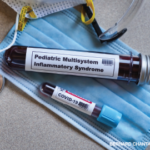For treatments, 66% had received TNFi and 13% had received rituximab. Of the 68 total patients with SARS-CoV-2 infection, 31% developed pneumonia and 25% were admitted to the hospital. Mean time of hospitalization was 25.1 days and 3% of patients with SARS-CoV-2 infection did not survive.
Dr. Vargas noted that patients who had been receiving TNFi therapy for their rheumatic disease had lower rates of pneumonia and hospitalization, fewer days of hospitalization, lower World Health Organization (WHO) scale of severity of COVID-19 disease and lower mortality (0%) as compared to patients receiving other biologic therapies.
In contrast, patients who had been receiving rituximab had higher rates of pneumonia, hospitalization and WHO scale of severity of COVID-19 disease as compared to patients receiving other biologic therapy. An additional important finding from this study was that, although 100% of patients on TNFi developed SARS-CoV-2 IgG positivity after infection, 0% of patients receiving rituximab developed such antibodies.
Outcomes for Anakinra Treatment
In the final abstract presentation, Shirkhan Amikishiyev, MD, Department of Rheumatology, Faculty of Medicine, Istanbul University, Turkey, discussed predictors of outcomes for anakinra treatment in COVID-19 patients with MAS. For this study, records were reviewed for adult patients hospitalized with COVID-19 between March 2020 and May 2021.
From this group, patients were identified as having COVID-19 related MAS based on expert opinion and a scaled score created by the research group evaluating the probability of MAS using typical features (i.e., fever, ferritin >550 ng/ml, neutrophilia >6000 cells/mm3, lymphopenia <1000 cells/mm3, etc.).
From within this group, the patients who received anakinra treatment constituted the study cohort, and a total of 218 such patients were identified. Overall, it appears that patients who received anakinra earlier in the course of hospitalization fared better and that decreases in C-reactive protein (CRP), ferritin and D-dimer and increases in lymphocyte count were associated with improved outcomes.
In contrast, increased D-dimer and troponin were associated with worse outcomes, possibly indicating the presence of cardiovascular and thrombotic pathologies that did not respond to anakinra. Finally, unlike in patients treated with tocilizumab, change in CRP was found to be a helpful biomarker to follow in evaluating efficacy of anakinra treatment.
The session as a whole was tremendously interesting and insightful, and much remains to be understood about the pathogenesis of severe COVID-19 disease. As was clear from the presentations, the field of rheumatology has accepted the challenge of seeking to understand this complex condition. If there is a silver lining to the pandemic, perhaps it is that understanding SARS-CoV-2 will lead to a better understanding of other viral pathologies for autoimmune disease and of the complicated machinery of the immune system as a whole.



